The Ultimate Guide to Dungeons & Dragons: Part 6 - Tips for New Players to Make the Most of Their First Game
- Posted on
- By Tristan Donaldson
- Posted in D&D, Dungeons and Dragons
- 0

Here are some tips for Players and Dungeon Masters about how to introduce yourself and your friends to playing the iconic Dungeons and Dragons for the very first time.
Greetings adventurer!
So, you’re about to embark on your very first quest into the world of Dungeons & Dragons?
I’m envious. D&D is one of the most exciting and hilarious games ever, and you’re experiencing it all fresh. A whole fantastic world awaits, and while your experience will be your own, I can certainly offer some advice so that you can make the most of it.
Here are some tips for players about how to introduce yourself and your friends to playing the game for the very first time.
Bring Other Newbies to the Table
A big turnoff for new players is joining experienced players mid-way through a campaign and not knowing what’s happening. When that occurs, they can’t participate, and then instantly lose investment.
If you’re new, start with mostly other new people too. New players will inevitably do something silly their first time around, so it’s less embarrassing if everybody else does too. You’ll even bond over not knowing exactly what you’re doing, and can share in the camaraderie of trying a new activity for the first time together.
Do consider bringing an experienced and importantly, patient player if you can, though. They’ll offer you some pointers on how to play, and also rein everyone in when they get distracted.
Stay Focused on the Story
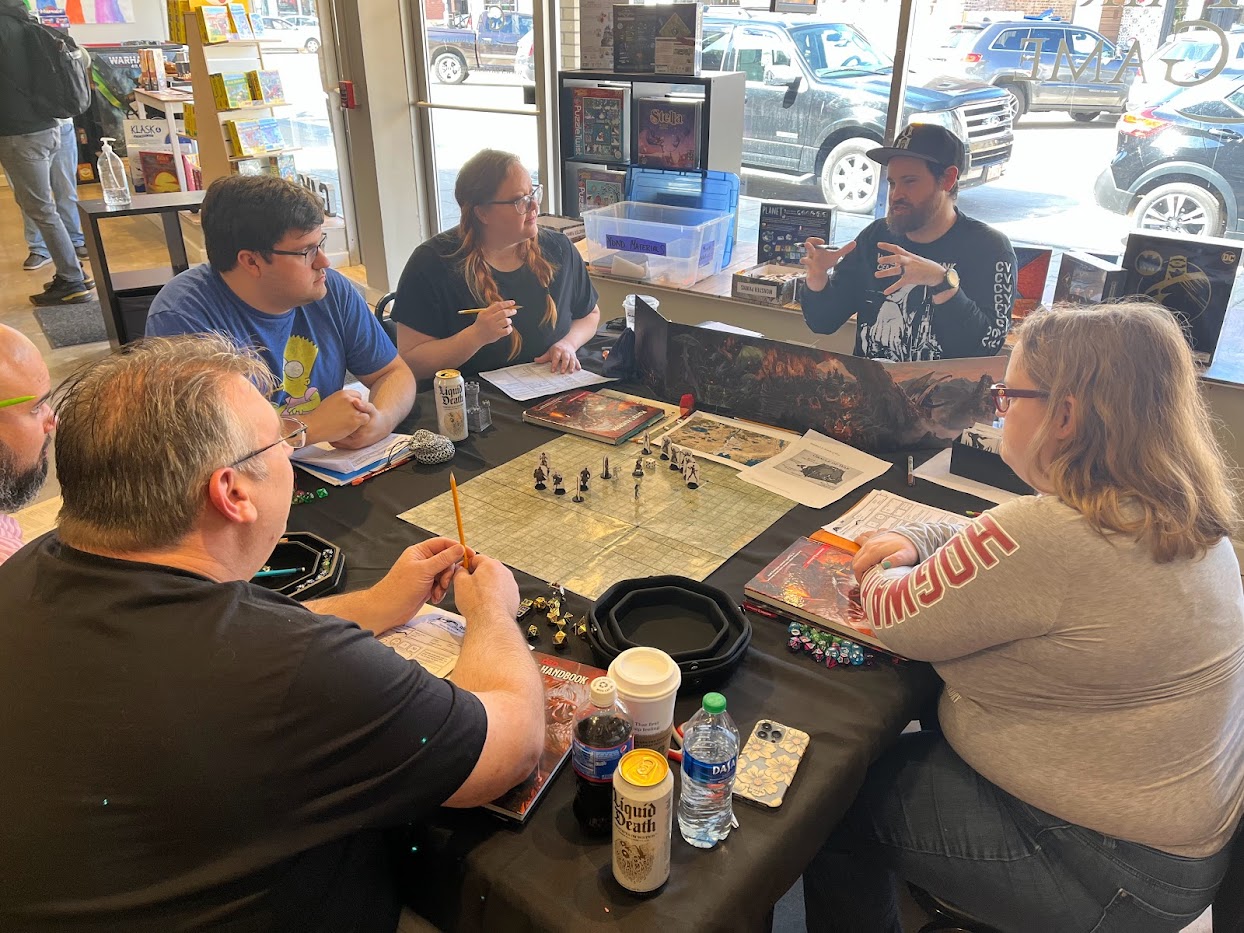
It can be tempting when hanging out and being silly with friends to start goofing off and talking about unrelated topics.
While this will be fun for players, it isn’t for the DM.
In a way, you’re telling them that your side conversation about a TV show is more important than playing the story that they’ve spent substantial effort preparing. Your time at the table is limited, and you can always talk about shows or anime later.
Channel that energy instead to doing something fun in-game, like befriending an NPC or thinking of how your party can best fight the upcoming boss.
Understand That D&D Is Cooperative
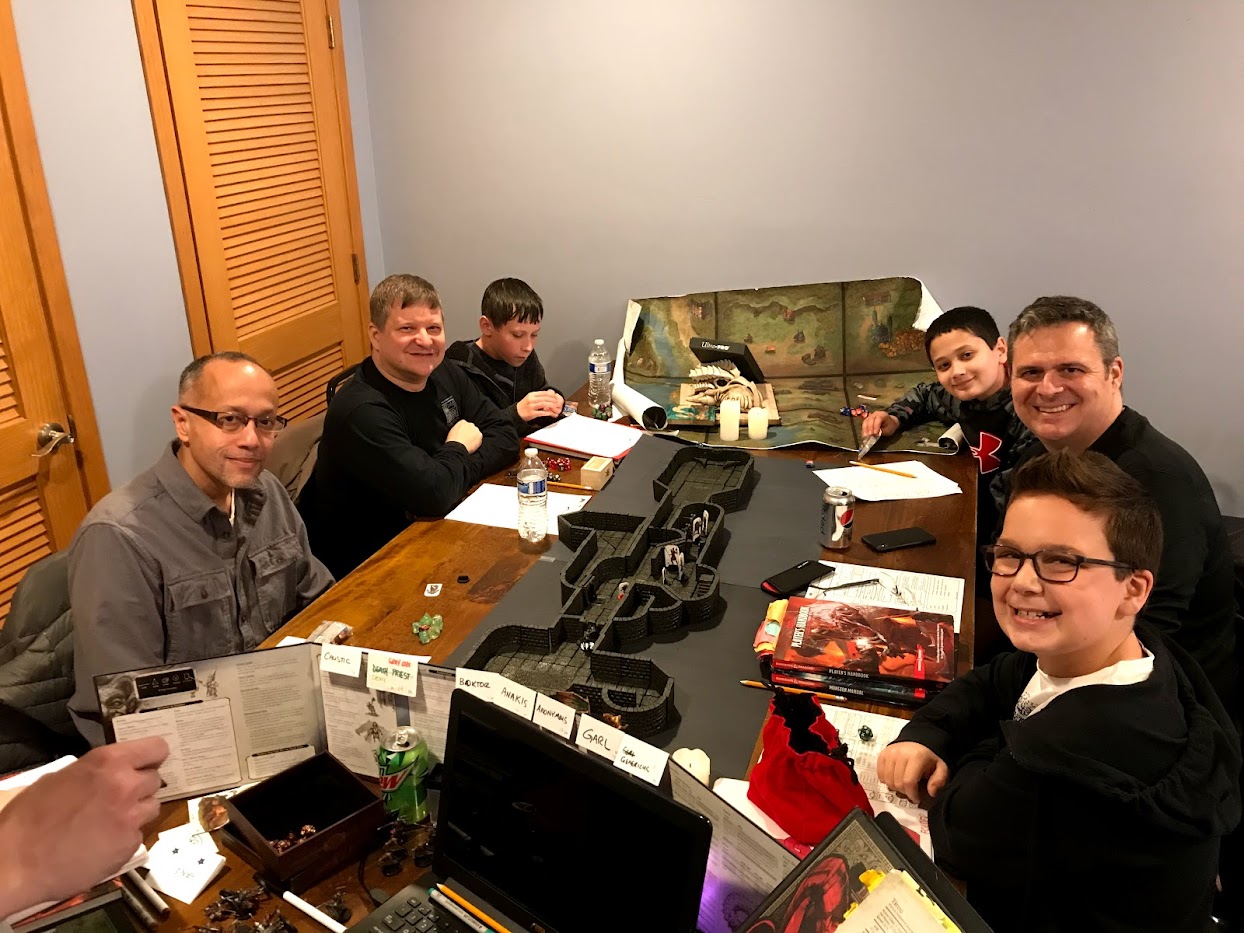
Most people are used to board games like Monopoly, where everyone is competing to be the best and win. However, D&D is a team game, and that includes the DM.
Together, everyone is trying to have fun and tell a good story. The DM is simply there to provide the conflict and challenges that will drive that story forward.
Help your fellow players to stay on target and work together in game, so that you and the DM’s story can shine. Remember, your DM is more like a referee and not an adversary. They want you to succeed! They just can’t make it easy, otherwise there is no story and no game.
Come Prepared
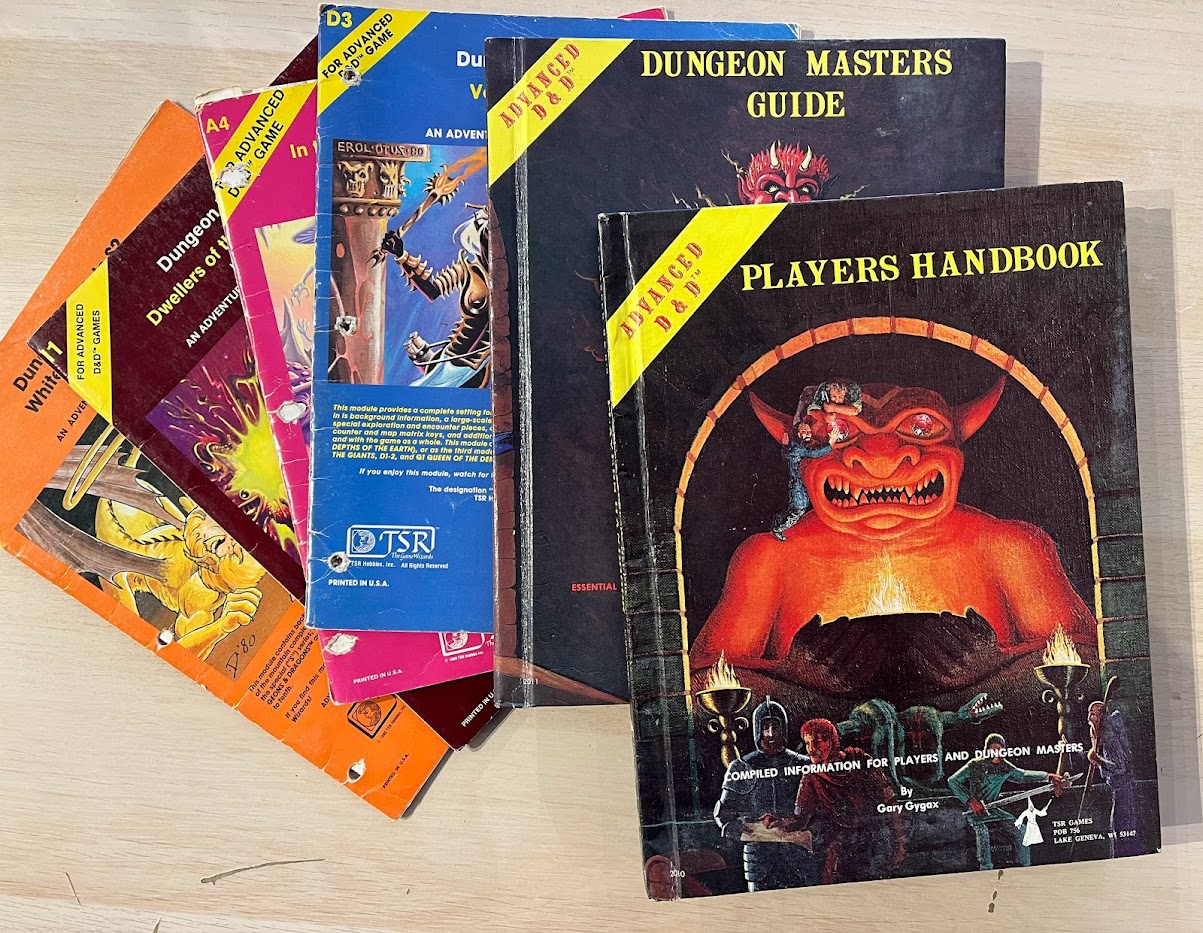
Just like you wouldn’t go to school without pencils and notebooks, you wouldn’t want to come to the gaming table without dice and a Player’s Handbook.
Not only will you need these to play, but it also signals to your DM that you’re serious about and invested in their game.
Coincidentally, you should bring pencils and notebooks to the gaming table too. You’ll need to keep track of story notes during the game, as well as update your character sheet.
Behind The DM Screen - Tips For Dungeons Masters:
Ask What Your Players Want in Advance
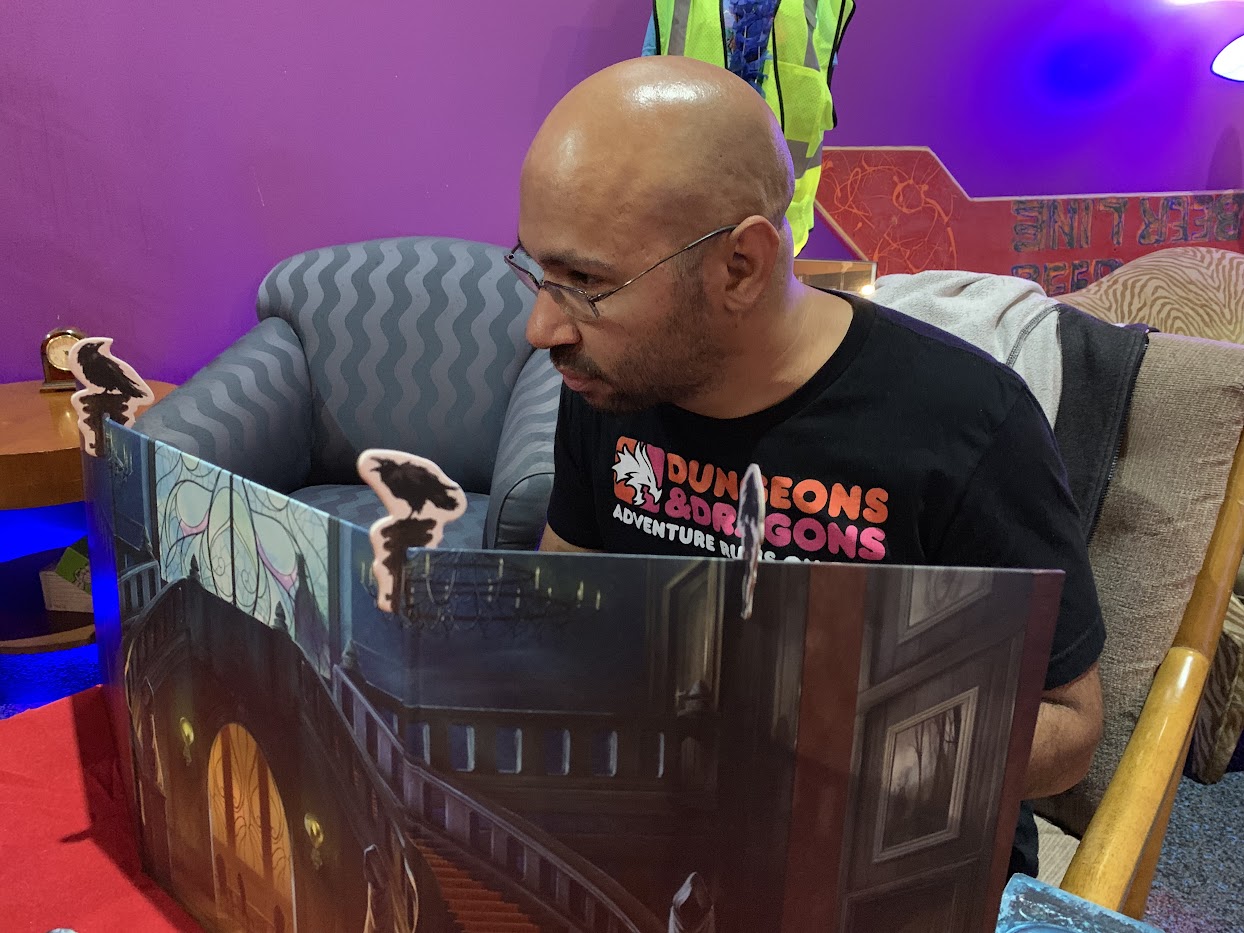
Your players are your audience. You want to make the game something that’s fun for them specifically, so just ask them what kind of stuff that they want to do in your adventure.
If they give vague answers, ask about favorite movies, shows, or books, and plan something tonally similar to that.
Hopefully, you’ve got like minded friends together in your group, but it can also be fun combining wildly different media if you get a variety of answers. The point is, you can make a kick-ass story that you love, but the players won’t play it for long if they can’t relate to it or actively dislike the subject matter.
Imagine wanting to play a daring sci-fi adventure on a spaceship, but getting stuck in lengthy role-playing scenes about political debates.
That’s why Star Wars fans had a hard time with the prequels: it wasn’t what they wanted or expected, it was just what George Lucas did. The divide can get even bigger when you introduce heavy subject matter like adult themes or graphic violence, so it’s important to check if any material will be triggering for that reason alone.
Keep it Simple
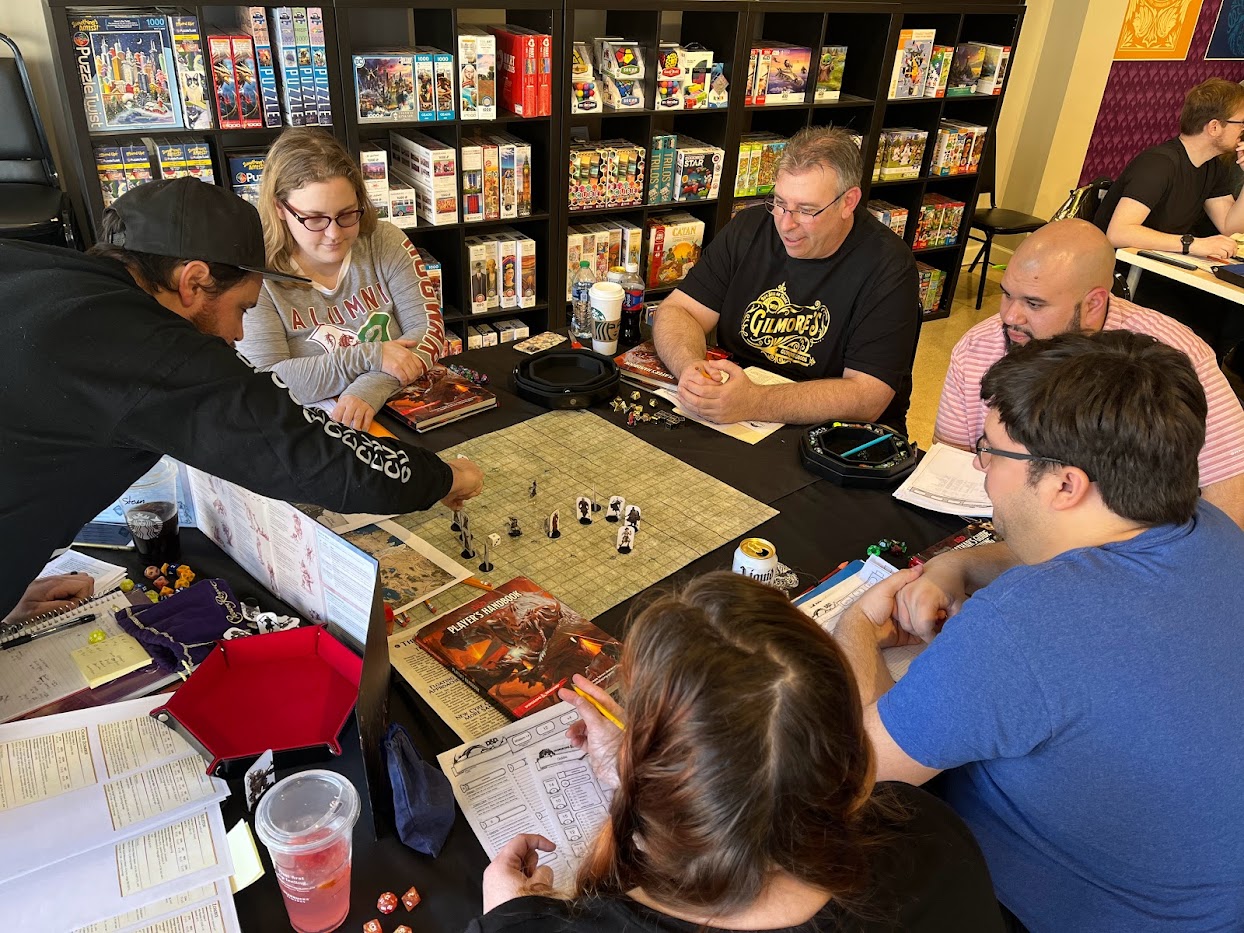
It can be tempting when first starting out to go overboard.
You’ve begun a new game with a ton of lore, and you’re super excited about introducing your closest friends to this awesome world you’ve made. The problem is that cramming in tons of material can both overwhelm the players and sideline them in their own story.
Remember, they’re the heroes.
They need to be leading the action, not an uber-powerful NPC who outclasses them in every way. All the “lore” you really need to start is a simple quest in a starting area. Someone has a problem and they need help, but the party only needs to stay in the local area to solve it. That’s it.
Anything more, and the story will get too convoluted to follow for brand new players. I once had my players looking for a missing cat as their first adventure. It was silly and memorable, but never left their hometown. This simple plot hook led to uncovering a secret ritual performed by evil raccoon sorcerers and demons.
See, you don’t need much to have a good time!
Use a Module
I can’t stress enough how great modules can be. An entire adventure is already prepared for you, designed to introduce new players and DMs to the game!
That’s so much work already done for you. The encounters are already balanced for you, and the plot escalates in an organic way as the characters increase in level.
The stories are often simple enough to jump into right away, but also leave plenty of room for sandbox exploration.
Because they’re limited in length, it can be a great way to introduce the players to the game without the huge commitment that a longer campaign entails.
Wizards of the Coast has a lot of great modules, but “Phandelver And Below - The Shattered Obelisk” and “Stormwreck Isle” are specifically geared towards beginners and are terrific fun.
We included a whole list of top tier modules for beginners back in part 4 so be sure to check those out too!


Comments
Be the first to comment...